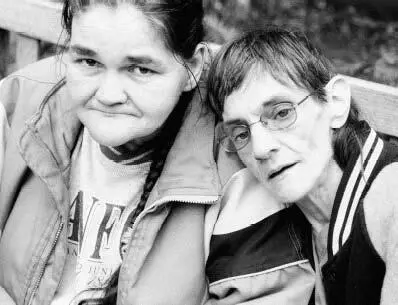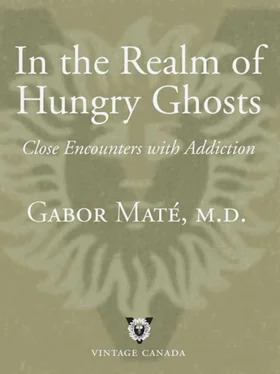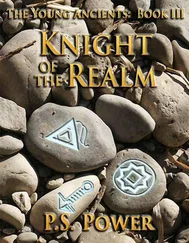“To tell you the truth,” I said to Shany before our farewell, “after what you said about the singers in Derry, I’d like to be buried at your cathedral myself. Too bad I’m Jewish.”
“Well, we could do a Jewish one for you, too…. Now what was that song he wanted again?”
“‘A Whiter Shade of Pale’ by Procol Harum.” I spelled out the name of the group.
“I have to write it down, because my brain isn’t working…I’ll get on the ball with that for him. Oh, God, we’re devastated. It’s just torture. But I’m so happy to have spoken with you. I can hear the kindness. I can see he is in good hands.”
“I can see how much he is loved over there, too.”
“Yes, you have no idea how much he is loved. What a lovely boy he was…and then the addiction got the better of him.”
That conversation took place on a Friday. Cory died in his room at the Portland Sunday evening. Many friends came to his wake, as did his ex-wife and son and daughter. Great stories were told. He is missed, gentle soul that he was. And the gap left by Stevie in everyone’s hearts will not be filled. Her life, too, was a miracle. If, after all she had endured, it took drugs for her to be able to laugh and sing that life, who is to be her judge?

Nearly two years after his death, Penny continues to mourn Brian. “You always will,” I tell her. The friendship with Beverly has been a godsend for Penny. Today, as I look at Bev’s beaming face I note with surprise that the pick marks that chronically disfigure it have cleared—the relationship with Penny has done her a world of good, too.
“My son has called me,” says Bev breathlessly. “He called me. He’s going to drive here from Alberta and take me home for Christmas. And Penny’s coming with me. He said it was okay to bring someone.”
Beverly hasn’t spoken with this son, a twenty-four-year-old who lives with his wife and two young children in a small Prairie town, for three years. She hasn’t seen him for seven. “He wants his mom home for Christmas, can you believe it? I’ll see my granddaughters.”
Penny goes outside to have a smoke after hearing my assurance that all their medications will be arranged for the trip, including Beverly’s HIV drugs and the methadone they both take.
“I was only worried about one thing,” says Bev. “My former husband lives at my son’s place. When he heard I was coming, he phoned and asked if I’d get back together with him. ‘You crazy?’ I said. ‘What for? So I could be your doormat again? Your whipping post? Your punching bag? No thanks.’ Penny will be with me. He won’t do nothin’ when someone else is around…I told my son she’s my nurse.”
“Don’t do that,” I suggest. “Don’t lie. It will ruin your visit. You want to feel close with your son? Don’t begin with a lie.”
“You’re right,” Bev laughs. “But I’m so excited. My son wants his Mom home for Christmas. He’s driving all the way here to get me…I know I’m crying. It’s because I’m so happy. I never thought I’d be so happy ever again.”
Beverly smiles through her tears and looks at me expectantly. She wants something. I note a slight twinge of resistance in my chest and quickly let it go. I remove the stethoscope from my neck and stand up as Beverly, too, rises from her chair. She sobs. We wrap our arms around each other in a wordless embrace.

On my way out through the downstairs lobby of the Portland I’m called into a side room, where Jerry lies panting on a bench by the wall. He clenches his right fist over his heart. Jerry is fifty-four, with coronary disease and a quadruple bypass. The cocaine he smokes regularly is not the best medicine for a man with a cardiac condition and a history of heart attacks. At present he is experiencing chest heaviness, with pain radiating down the left arm. He was discharged from the emergency ward last night with the same complaint—it’s a flare-up of his angina. I examine him and send to a nearby pharmacy for nitroglycerin spray. As we await the courier’s return, pregnant Clarissa rushes in and slumps down on the bench at Jerry’s feet. She weeps and wails incoherently. Hopped on cocaine, she is emotionally overwrought following a loud verbal street altercation with her boyfriend, father of her child-to-be. I could hear them in the background even while I auscultated Jerry’s heart sounds and lungs with my stethoscope.
Clarissa hasn’t yet followed up on any of the prenatal care appointments we’ve arranged. The ultrasound showed she is seventeen weeks along, past the date for an early abortion. A late termination remains an option, but she’s unlikely to choose that, having heard the infant’s heartbeat during the ultrasound procedure. More precisely, she’ll keep herself too wasted to decide anything. It will all just happen. We’d better prepare the staff for another Celia scenario, I say to myself. I comfort Clarissa briefly, until she is led away by another resident, who promises her “something to make you feel better.” With her companion she walks toward the elevator, swaying in her high-heeled shoes, her jean-skirt leaving her bare thighs half-exposed. That’s how she stood this morning on some street corner in the November chill.
Jerry’s discomfort eases with the nitro, and I head for the exit once again. From behind his desk Sam, the senior staff worker, points to the entranceway between the hotel’s outside gate and inner door. There stands Kenyon leaning on his cane, his body bent like a question mark. Blood dripping from his head forms a pattern of small, discrete droplets on the floor—a good sign; he’s unlikely to have suffered a deep wound. “Three hundred assaults in four years,” he keens, drawing out the vowels, his high-pitched voice now intensified by outrage and pain. “And this guy pushed me down ’cause I didn’t have any tens or twenties when he robbed me. All I had was a dollar-fifty in change, so he ground my head into the cement…Three hundred assaults. You are my witness.”
I recall that only last week Kenyon had requested an increase in his dose of imipramine, an antidepressant. “Because of my dreams,” he said. “They make me cry.”
“You’re having bad dreams?”
“No, I’m having good dreams. I dream I’m back on the Prairies, with a home and a wife and children. Then I wake up to find I’m still here, in the Downtown Eastside. And I start to cry. I want more medication so I don’t have to cry so much.”
With gloved hand I part Kenyon’s greying hair and discover a small, oozing scalp laceration. “It’s okay,” I tell him. “You don’t need any stitches. You’ll be all right.” I give Sam the necessary instructions and step outside into the wind-blown, grey mid-afternoon.
On the Hastings Street sidewalk, under the tread of passersby the fresh-fallen snow has already turned to an icy slush.

Postscript
Penny died on April 23, 2007, at St. Paul’s Hospital, of a massive hemorrhage, owing to an inoperable rupture of her esophagus. She was fifty-two years old. “If I get out of this alive, I’ll stop using coke,” she told me a few days before her death—but she never did quit; almost to her last moments she begged people to smuggle cocaine to her hospital room.
“On her best friend Bev’s advice, we will have cupcakes and grape soda following the service,” said the announcement for her memorial event.
APPENDIX I
Читать дальше














